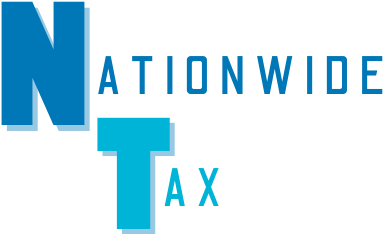Introduction
When it comes to managing your finances, you may find yourself wondering if a bookkeeper is cheaper than an accountant. Both professionals play crucial roles in maintaining the financial health of your business, but they have different skill sets and responsibilities. In this article, we will explore the differences between bookkeepers and accountants and discuss why hiring a bookkeeper can be a cost-effective solution for your business.
Table of Contents
- Differences between Bookkeepers and Accountants
- The Benefits of Hiring a Bookkeeper
- Cost Savings with a Bookkeeper
- Key Takeaways
- Frequently Asked Questions
- Conclusion
Differences between Bookkeepers and Accountants
Bookkeepers and accountants both handle financial records, but their roles and responsibilities differ. Understanding these differences can help you determine which professional is best suited for your business needs.
Bookkeepers
Bookkeepers are responsible for recording and organizing financial transactions. They ensure that all income and expenses are accurately documented, reconciling accounts, and maintain the general ledger. Bookkeepers also handle tasks such as payroll, invoicing, and managing accounts receivable and payable.
Think of bookkeepers as the foundation of your financial house. They lay the groundwork by diligently recording every financial transaction, ensuring that your business’s financial records are up to date and accurate.
Bookkeepers usually have a strong attention to detail and are proficient in using bookkeeping software. They are typically certified or have formal training in bookkeeping.
Accountants
Accountants, on the other hand, use the financial records prepared by bookkeepers to analyze and interpret the data. They provide insights into your business’s financial health, prepare financial statements, and offer strategic advice for business growth.
Accountants are like architects who take the foundation created by bookkeepers and construct a blueprint for your business’s financial success. They analyze the financial data, identify trends, and help you make informed decisions to optimize your business’s performance.
Accountants are highly educated professionals who hold advanced degrees and certifications. They have a deep understanding of tax laws, regulations, and financial analysis.
The Benefits of Hiring a Bookkeeper
While both bookkeepers and accountants are essential for your business, there are several benefits to hiring a bookkeeper.
- Cost Savings: Bookkeepers generally charge lower hourly rates compared to accountants, making them a more cost-effective option for small businesses or startups with limited budgets.
- Time Efficiency: By delegating the day-to-day financial tasks to a bookkeeper, you can focus on growing your business and making strategic decisions. A bookkeeper can save you valuable time by managing tasks such as data entry, bank reconciliations, and payroll.
- Accuracy and Compliance: Bookkeepers are meticulous in their work, ensuring that your financial records are accurate and compliant with relevant regulations. This attention to detail can help you avoid costly errors and penalties.
- Financial Insights: While accountants provide valuable financial analysis, bookkeepers can also provide insights into your business’s financial health. They can generate reports, identify trends, and flag potential issues, allowing you to make informed decisions to drive growth.
Cost Savings with a Bookkeeper
Hiring a bookkeeper can result in significant cost savings for your business. Here’s how:
- Affordable Hourly Rates: Bookkeepers typically charge lower hourly rates compared to accountants, making them a more cost-effective choice for routine financial tasks.
- Reduced Errors: Bookkeepers ensure accurate and up-to-date financial records, minimizing the risk of errors that could lead to financial losses or penalties.
- Time Savings: By outsourcing bookkeeping tasks, you free up your time and that of your employees. This allows you to focus on revenue-generating activities and strategic decision-making.
- Efficient Workflow: A dedicated bookkeeper can streamline your financial processes, making them more efficient and reducing the need for costly corrections or adjustments.
Key Takeaways
While both bookkeepers and accountants play important roles in managing your business’s finances, hiring a bookkeeper can be a cost-effective solution for many businesses.
- Bookkeepers are responsible for recording and organizing financial transactions, while accountants analyze and interpret the data.
- Hiring a bookkeeper can result in cost savings, time efficiency, accuracy and compliance, and valuable financial insights.
- Bookkeepers generally charge lower hourly rates compared to accountants, making them an affordable option for routine financial tasks.
- Bookkeepers ensure accurate and up-to-date financial records, reducing the risk of errors and penalties.
Frequently Asked Questions
1. Can a bookkeeper do the same job as an accountant?
While bookkeepers and accountants have overlapping responsibilities, they serve different functions. Bookkeepers focus on recording and organizing financial transactions, while accountants provide analysis and strategic advice based on the financial data prepared by bookkeepers.
2. How much does a bookkeeper cost?
The cost of hiring a bookkeeper can vary depending on factors such as location, experience, and the complexity of your business’s financial needs. Generally, bookkeepers charge hourly rates that are lower than those of accountants.
3. Do I need both a bookkeeper and an accountant?
While it is not mandatory to hire both a bookkeeper and an accountant, having both professionals can provide comprehensive financial support for your business. Bookkeepers ensure accurate recordkeeping and day-to-day financial tasks, while accountants offer analysis and strategic guidance.
Conclusion
When it comes to managing your business’s finances, hiring a bookkeeper can be a cost-effective solution. Bookkeepers offer essential services at affordable rates, allowing you to save money while ensuring accurate and up-to-date financial records. By partnering with a bookkeeper, you can focus on growing your business and making informed decisions based on valuable financial insights.
